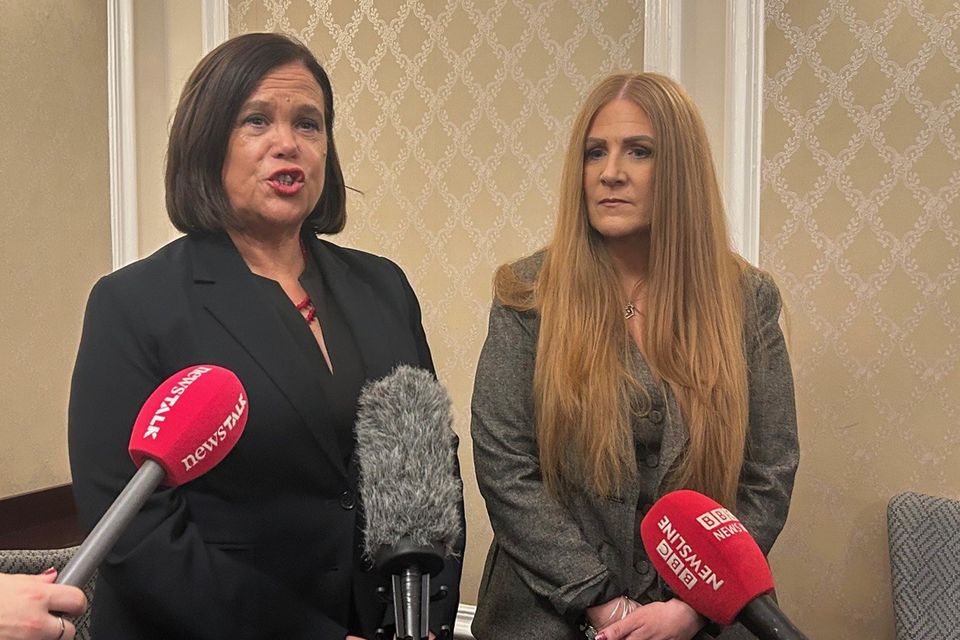During his ultimately victorious campaign for the presidency, Donald Trump made no bones about his intention to use the legal levers of government to go after his perceived enemies. When he takes office in January, we should therefore expect him to launch a reign of terror against dozens of people he sees as having crossed him. And his vengeance will be enabled by the Supreme Court opinion granting presidents broad immunity from prosecution.
Granted, Trump frequently gives the impression that he has little understanding of or even interest in many of the policies he pressed on the campaign trail. But retribution against his enemies is clearly something that gets him up in the morning. From well before his entry into politics, Trump has been single-minded in intimidating and exacting retribution against his opponents.
A passage from one of his tacky books that was read into evidence at his New York criminal trial declares, “My motto is: Always get even. When somebody screws you, screw them back in spades.”
Trump is in this respect not unique in the annals of the American presidency. The desire to “screw” one’s enemies, a hallmark of the insecure leader, is the impulse that brought down Richard Nixon. Watergate originally sprang from Nixon’s vendetta against Daniel Ellsberg, whom he was determined to embarrass for exposing the Pentagon Papers.
In the wake of Nixon’s abuses, the country put in place a series of laws, regulations and norms designed to prevent government by vengeance. These included a prohibition on White House meddling in Justice Department prosecutions that took on canonical status.
I was a Justice official at the beginning of what became the Whitewater scandal, and it would have been unthinkable at the time for a White House official to try to direct the department to investigate a political enemy. No administration would have dared, and no department official would have acquiesced.
Since Watergate, the only administration that failed to fully respect that principle was Trump’s. His political appointees repeatedly pushed the department to at least provide information about continuing prosecutions. In those difficult years, the department sometimes resisted but sometimes relented. Biden’s attorney general, Merrick Garland, made it a priority to rebuild the wall between the White House and the Justice Department.
Trump has made it clear that he intends to raze that wall in his first days in office. Working off the blueprint of Project 2025, Trump has announced that he plans to hollow out the department’s career staff and replace them with political appointees who will serve at his pleasure and be loyal to him, not the Constitution.
At that point, there will be no real impediment to the use of federal power for revenge against Trump’s long list of enemies. It will be the opposite of the department’s proud aspiration to do “justice without fear or favor.”
Moreover, Trump has said he will rely on the Supreme Court’s immunity opinion to provide full cover against any legal resistance. When asked recently how he would handle special counsel Jack Smith, who led his two federal prosecutions, Trump replied, "It's so easy — I would fire him within two seconds," adding that he would enjoy “immunity at the Supreme Court.”
The irony and tragedy of Trump’s invocation of the opinion is that the court declared it was ruling not for Trump but “for the ages.” But it is indeed Trump whose unscrupulous ambition it has served. And while the court reasoned that immunity is needed to safeguard aggressive, nimble and presumably lawful presidential action, Trump takes the lesson that he can violate the Constitution with impunity.
The corrupt use of prosecutorial power can amount to a crime. For starters, the federal code criminalizes conspiring to injure any person because of their exercise of constitutional rights or their race. But the Supreme Court has ensured that Trump could carry out unlawful prosecutions: He can commit crimes but can't be made to answer for them.
Trump’s retribution agenda may encounter other roadblocks. Grand juries may not go along with prosecutions that reek of vengeance, and trial juries and judges are more likely to resist.
Also, presidential immunity doesn’t extend to other executive branch officials, and Trump will need confederates in the Justice Department to do his bidding. But with a clear Republican majority in the Senate, Trump is likely to get any senior official he wants confirmed. That could include the likes of the right-wing activist and attorney general hopeful Mike Davis, who wrote Wednesday of Trump’s opponents, “I want to drag their dead political bodies through the streets, burn them, and throw them off the wall. (Legally, politically, and financially, of course.)”
As a practical matter, by far the most important protections against vengeful prosecutions are career federal prosecutors’ nonpartisan professionalism and the norms forbidding the White House from telling them whom to prosecute. Trump is plainly fixing to lay waste to those safeguards. That alone would constitute a giant step away from the rule of law and toward autocracy.
Harry Litman is the host of the “Talking Feds” podcast and the “Talking San Diego” speaker series. @harrylitman
This story originally appeared in Los Angeles Times.
Massachusetts Governor Vows to Refuse Trump Request for Help with Mass Deportations: 'Absolutely Not'
The Democratic governor warned other states of the pressure they will face following Trump's election
By Maryam Khanum
Published 11/07/24

Massachusetts Gov. Maura Healey expressed that she would refuse to assist in mass deportations in her state, and warned other states of the pressure they will face. Getty Images
Massachusetts Gov. Maura Healey said that she would refuse to assist in mass deportations in her state, and warned states of the pressure they will face to penalize and deport undocumented immigrants.
"If the Trump administration requested, would the Massachusetts State Police assist in mass deportations?" MSNBC's Lawrence O'Donnell asked the governor.
"No. Absolutely not," Healey responded.
Massachusetts Governor says her state won’t assist with deportations if President Trump’s administration asks.
She says she will protect the illegals in her state. pic.twitter.com/I3oHWmtg8I— Daily Loud (@DailyLoud) November 7, 2024
"I do think it's important that we all recognize that there's going to be a lot of pressure on states and state officials, and I can assure you, we're going to work really hard to deliver," Healey continued.
Former President Donald Trump was declared the winner of the 2024 presidential election in the early hours of Wednesday morning, making him the 47th president of the United States. Trump largely targeted undocumented immigrants present within the United States over the course of his campaign, promising "to have the largest deportation in the history of our country" if elected.
"While I'm sure there may be litigation ahead, there's a lot of other ways that people are going to act and need to act for the sake of their states and their residents," Healey told MSNBC.
"I think that the key here is that, you know, every tool in the toolbox has got to be used to protect our citizens, to protect our residents and protect our states. And certainly, hold the line on democracy and the rule of law as a basic principle," she continued.
Originally published by Latin Times.















